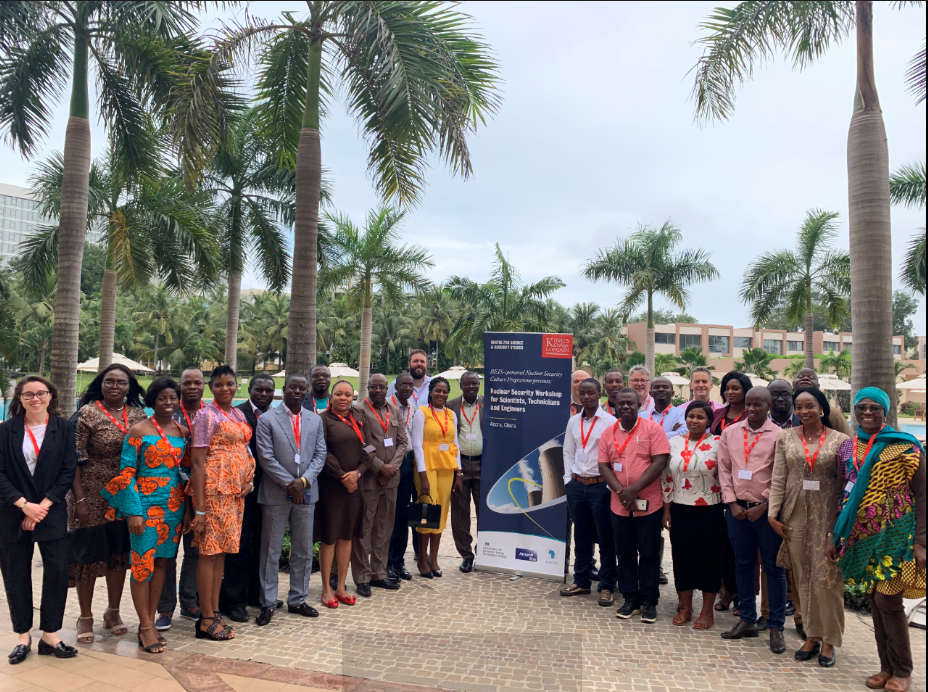ISTC and the UK Department for Business, Energy and Industrial Strategy jointly support a Workshop in Ghana

A workshop on nuclear security for scientists, technicians and engineers was organized on 25 September 2019 in Accra, Ghana, by the African Centre for Science and International Security (AFRICSIS) and Nuclear Security Culture Consortium, sponsored by the UK Department for Business, Energy & Industrial Strategy (BEIS) and by International Science and Technology Centre. The three-day forum outlined the risks associated with nuclear and radiological material and information, and examined practical steps that can be taken to enhance safety and security in that regard. The event brought together participants from academia, industry, and regulatory institutions in Africa. Based on best practices, as well as on IAEA guidance, the program included interactive lectures, group activities, real-life case studies and a tabletop exercise. Experts from King’s College London delivered presentations on the following topics: nuclear threats posed by non-state actors; risks and responsibilities in the academic sector; radiological security risks; alternative technologies; proliferation; export controls; cyber security; insider threats; and nuclear security culture.
ISTC sponsored specifically a Panel discussion on Nuclear Security and Safety of Uranium during Transport. It was focused on the findings achieved within the EU-funded ISTC-implemented project entitled MC5.01/B15 Support to the Southern African States in Nuclear Safety and Safeguards. The aim of the project is to strengthen and harmonize the nuclear regulatory framework in four SADC countries - Malawi, Namibia, Tanzania, and Zambia - for sustainable uranium mining, milling, processing, and associated transport. The discussion was based on the overall overview of safety and security enacted laws, promulgated regulations, and established policies that are applicable to uranium mining, processing, reclamation, long-term stewardship, transportation, and security arrangements. Several gaps were identified in the existing institutional and regulatory framework. There were a lot of questions generated by the audience. Representatives of participating countries expressed interest to join the project and among them was Niger. Two specialists from the Project’s pool of experts facilitated this section - Dr. Simon Adu, Ag. Head, Nuclear Security Department, Nuclear Regulatory Authority, Ghana, and Dr. Eng. Meserecordias W. Lema, Lecturer and Dean, School of Environmental Sciences and Technology, University of Dodoma, Tanzania.
The workshop offered opportunities for networking and experience sharing on nuclear safety and security. The participants familiarized themselves with the work done at KCL as well as with the ongoing EU –funded project MC 5.01 15B.


